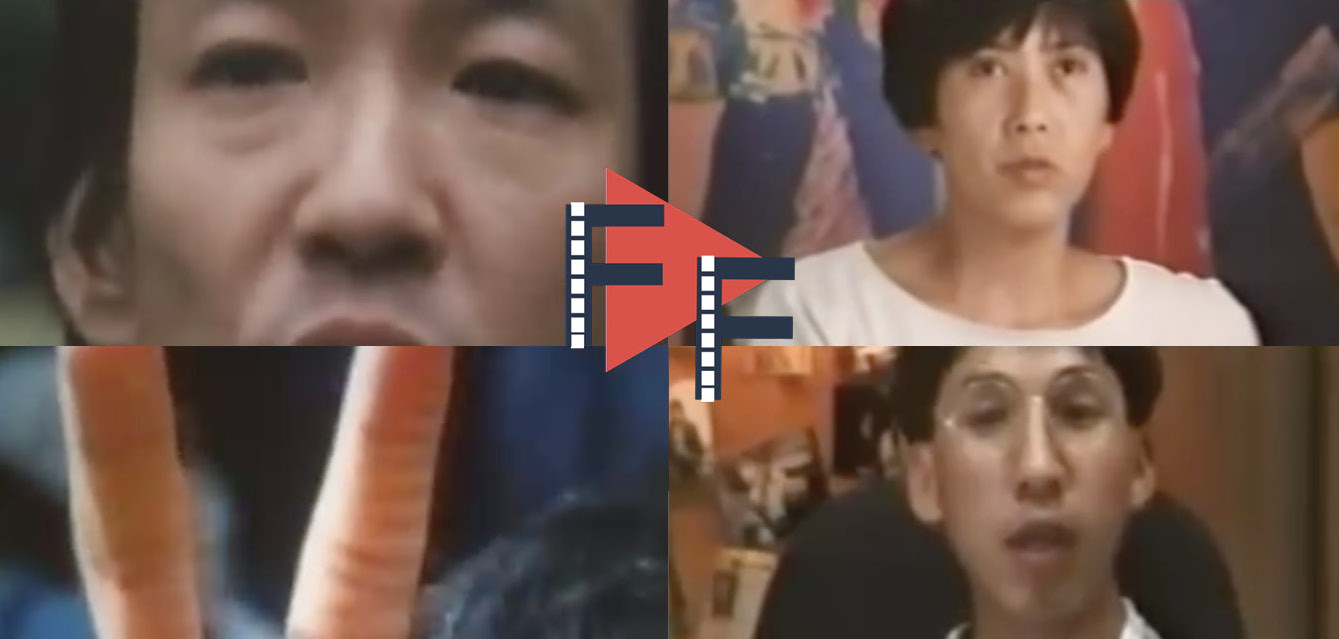1990 documentary ‘Sunless Days’ is a rare snapshot of the post-June 4 Chinese community

A somewhat experimental piece from Hong Kong director Shu Kei, as free-wheeling as it is far-flung, Sunless Days combines archival footage with interviews, first-person narration, and other unorthodox elements.

For political and economic reasons, we’re unlikely to see a big-budget, tear-jerking dramatization of June 4 anytime soon. A mainland Chinese film about the incident is out of the question, although banned movies like Lan Yu 藍宇 (2001) and Summer Palace 颐和园 (2006) are both set during the time of the Tiananmen Square protests. Hong Kong and Hollywood studios might not be reliable for such an undertaking, either. As these two industries have become increasingly dependent on the lucrative mainland market, any attempt to make a Tiananmen Square movie would likely strain relations between film studios and the Chinese government.
Instead, anybody looking to examine the events of June 4 through film is better off exploring a documentary. The American-made The Gate of Heavenly Peace (1995) is usually considered the standard on the subject. The filmmakers spent nearly six years collecting and editing the film’s footage, including interviews with student leaders, intellectuals, and workers. The result is a day-by-day, thorough account of the 1989 protests, with the suggestion that extremists among both the protestors and the government weakened the moderates. While very well-received by Western viewers, the Chinese government was naturally not pleased, and some Chinese dissidents criticized the film for its moderate stance.
Another film from this time, the British Moving the Mountain, was inspired by a book written by student leader Li Lu 李录. With a runtime of only 80 minutes or so, Moving the Mountain is a smaller, more personal take on the June Fourth Incident. It begins with Li going over his incredible biography, narrating over a black-and-white sequence of childhood memories. Li goes on to discuss his role in the Tiananmen Square protests, while interviews with student leaders like Wang Dan 王丹 and Chai Ling 柴玲 are also incorporated into the film. Although informative, centering the narrative on Li and other key student leaders makes the documentary a bit too romantic, and occasionally shallow.
Beyond English-language documentaries, Sunless Days 没有太阳的日子 (1990) is a rare, somewhat experimental piece from Hong Kong director Shu Kei 舒琪. Funded by Japanese broadcaster NHK, and initially aired on Japanese TV, Sunless Days grew out of a project about Taiwanese singer (and Tiananmen Square protester) Hou Dejian 侯德健. When the idea fell through, Shu came up with a new project about the impact of June 4 on Hong Kong and the overseas Chinese community. Working with celebrated Taiwanese screenwriter Wu Nien-jen 吴念真, Shu created a fascinating film that examines not only the then-fresh wounds of the Tiananmen Square massacre, but the meaning of a Chinese identity.
Like any article or movie you’re bound to find about June 4, Sunless Days features some very familiar images, such as Tank Man’s infamous confrontation, as well as the destruction of the Goddess of Democracy statue. The documentary is unique, however, for its international focus. Shu interviews Chinese across the world, making stops in Australia, Canada, and England. Stylistically, the film is as free-wheeling as it is far-flung. There’s the expected combination of archival footage and interviews, yet Shu throws in some unorthodox elements, like a jazzy soundtrack and a subplot about the story of his own family.
As the film opens, a poem is recited in voice-over as a ballerina dances in darkness. The speaker likens China to a “living coffin,” to a father who has killed his son and insulted his daughter. Moving into the rest of the film, Shu interviews his family members, friends, and artists. He finds his first subject, the poet Duo Duo 多多, living in exile in London. Duo Duo recounts his own experience of the massacre, noting the shock and disbelief so many people felt over the government’s response. Other interviewees include filmmaker Albert Cheung 张坚庭, actress and singer Deanie Ip 叶德娴, Trinidad-born playwright Winston Kam, and legendary director Hou Hsiao-hsien 侯孝贤.
While its overall theme might relate to the Tiananmen Square incident, Sunless Days’ emphasis on Chinese outside of the mainland asks the viewer to consider what exactly being Chinese means. How are exiled mainlanders, Hong Kongers, Taiwanese, and overseas Chinese different, and how do they all draw on their common heritage? On a smaller level, this breakdown of an ethnic family is reflected in the disintegration of Shu’s own immediate family. His father skipped out long ago, his mother refuses to leave Hong Kong, and his brothers have emigrated to Australia and Canada. As Shu himself once put it in an interview with scholar Chua Siew Keng, “This is a film about me and my family… It is also about the question of both 1997 and Tiananmen Square and about how families fall apart.” This personal substory, along with Shu’s first-person narration over much of the film, creates an unusual sense of intimacy for this kind of topic.
Given that it was released not even a year after the CCP rolled out the tanks, Sunless Days has none of the hindsight or research that later documentaries have brought to the subject. As a historical document, on the other hand, it’s a raw, valuable snapshot of a community grappling to come to terms with the anger, confusion, and sorrow the massacre wreaked in its wake. Its wider themes of cultural alienation and fragmentation remain relevant, cleverly paralleled in the incorporation of Shu’s own family into the film.
https://www.youtube.com/watch?v=Cuo5zMaQWwY
Film Friday is The China Project’s film recommendation column. Have a recommendation? Get in touch: editors@thechinaproject.com





